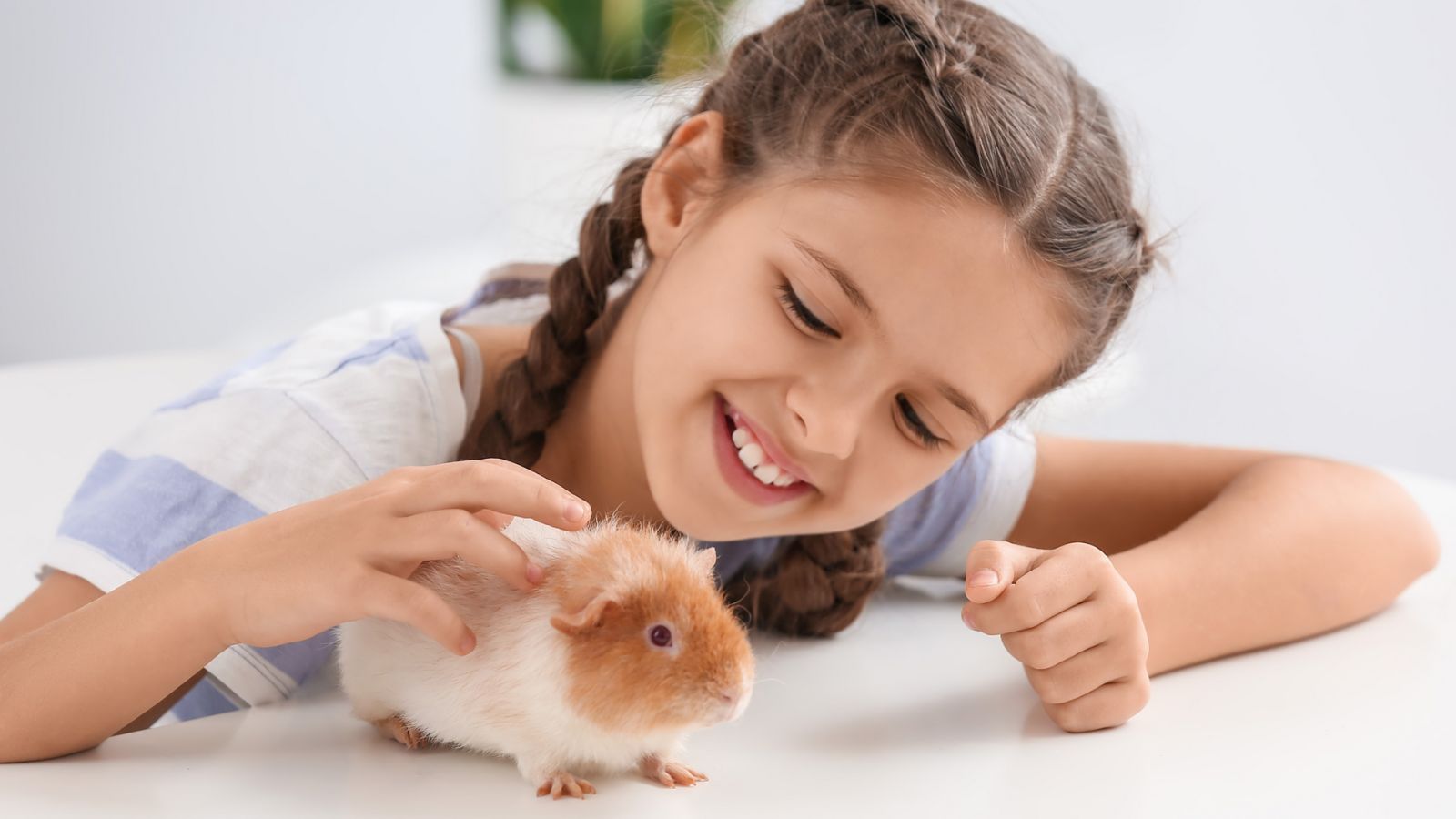Guinea pigs make delightful pets, known for their gentle nature and endearing personalities. As a responsible owner, you’ll want to ensure your furry friend is thriving in their environment. A happy and healthy guinea pig will display bright eyes, smooth fur, and engage in regular activity like exploring, eating, and socializing.

Recognizing signs of contentment in your guinea pig is key to providing them with the best care possible. These small animals communicate their well-being through various behaviors and physical indicators. By observing your pet closely, you can quickly identify if they’re feeling good or if something might be amiss.
Understanding your guinea pig’s health and happiness not only strengthens your bond but also allows you to address any potential issues early on. This guide will walk you through the essential signs to look for, helping you become an expert in reading your pet’s cues and ensuring they lead a joyful, healthy life.
Understanding Guinea Pig Behavior
Guinea pigs communicate through a variety of vocalizations and body language. Recognizing these signals can help you gauge your pet’s mood and well-being.
Positive Behaviors Indicating Happiness
Popcorning is a joyful behavior where your guinea pig jumps straight up in the air. This sudden burst of energy often indicates excitement or contentment. Purring is another positive sign, typically accompanied by a relaxed body posture.
Wheeking, a high-pitched vocalization, often means your guinea pig is happy or anticipating food. Chutting, a series of short, staccato sounds, usually signals a content or curious guinea pig.
Socializing with cage mates or seeking interaction with you are good indicators of a happy guinea pig. Watch for grooming behaviors, both self-grooming and mutual grooming between guinea pigs.
Stretching, especially when combined with a yawn, suggests your pet feels safe and comfortable. Licking you or other guinea pigs is a sign of affection and bonding.
Behaviors That May Indicate Discomfort or Illness
Hissing or teeth chattering often indicate aggression or distress. Pay attention if your guinea pig becomes suddenly withdrawn or uninterested in socializing.
Biting or nipping, especially if unprovoked, may signal pain or fear. Excessive scratching or hair loss could point to skin issues or parasites.
Lethargy or reluctance to move might indicate illness or pain. Watch for changes in eating habits or sudden weight loss.
Loud, repetitive squealing could mean your guinea pig is in pain or distress. Observe for any changes in bathroom habits, as these can signal health issues.
Hunched posture or hiding more than usual may suggest your pet is uncomfortable or unwell. If you notice any of these behaviors persisting, consult a veterinarian.
Guinea Pig Communication and Sounds
Guinea pigs use a variety of vocalizations and body language to express their emotions and needs. Understanding these sounds and behaviors is crucial for assessing your pet’s well-being and responding appropriately.
Vocalizations and What They Mean
Wheeking is a high-pitched squeal that guinea pigs make when excited or anticipating food. You’ll often hear this sound when opening the refrigerator or rustling a plastic bag.
Purring in guinea pigs can indicate contentment or annoyance, depending on the pitch. A low, steady purr usually means your pet is happy, while a higher-pitched purr may signal irritation.
Chutting, a series of short, staccato sounds, is a sign of happiness or exploration. Your guinea pig might make this noise while investigating a new toy or environment.
Chirping is a rare, bird-like sound that guinea pigs occasionally make. The exact meaning is unclear, but it may be related to stress or mating behavior.
Hissing or teeth chattering indicates aggression or discomfort. If you hear these sounds, your guinea pig may feel threatened or unhappy with its current situation.
Pay attention to the context and your pet’s body language when interpreting these vocalizations. Regular, positive sounds are good indicators of a happy and healthy guinea pig.
Keeping Your Guinea Pig Happy and Healthy
A happy and healthy guinea pig requires proper care in several key areas. By focusing on diet, habitat, and regular check-ups, you can ensure your pet thrives.
Diet and Nutrition
Guinea pigs need a balanced diet rich in vitamin C. Provide unlimited fresh hay, which should make up 80% of their diet. Offer a small amount of pellets formulated specifically for guinea pigs daily.
Give your pet a variety of fresh vegetables, focusing on leafy greens like romaine lettuce, kale, and parsley. Introduce new foods gradually to avoid digestive issues. Limit fruits due to their high sugar content.
Always have fresh, clean water available. Change it daily and clean the water bottle or bowl regularly. A good appetite is a sign of a healthy guinea pig, so monitor their eating habits closely.
Habitat and Living Conditions
Create a spacious enclosure for your guinea pig. The minimum size should be 7.5 square feet for one pig, with more space for additional pets. Use a solid-bottom cage with proper bedding, avoiding wire floors that can hurt their feet.
Provide hiding spots and toys for mental stimulation. Guinea pigs enjoy cardboard tubes, wooden chew toys, and fleece tunnels. Keep the habitat away from drafts and direct sunlight.
Clean the cage thoroughly once a week. Spot-clean daily to remove droppings and uneaten food. A clean environment helps prevent health issues and keeps your pet comfortable.
Regular Health Check-ups
Perform weekly health checks at home. Look for signs of illness such as lethargy, loss of appetite, or changes in droppings. Check their teeth, as overgrown teeth can cause serious problems.
Trim your guinea pig’s nails every 4-6 weeks. If you’re uncomfortable doing this, ask your vet for guidance. Brush their coat regularly, especially for long-haired breeds.
Schedule annual vet check-ups. Your vet can perform a thorough examination and address any concerns. Regular check-ups help catch potential health issues early, ensuring your guinea pig stays happy and healthy.
